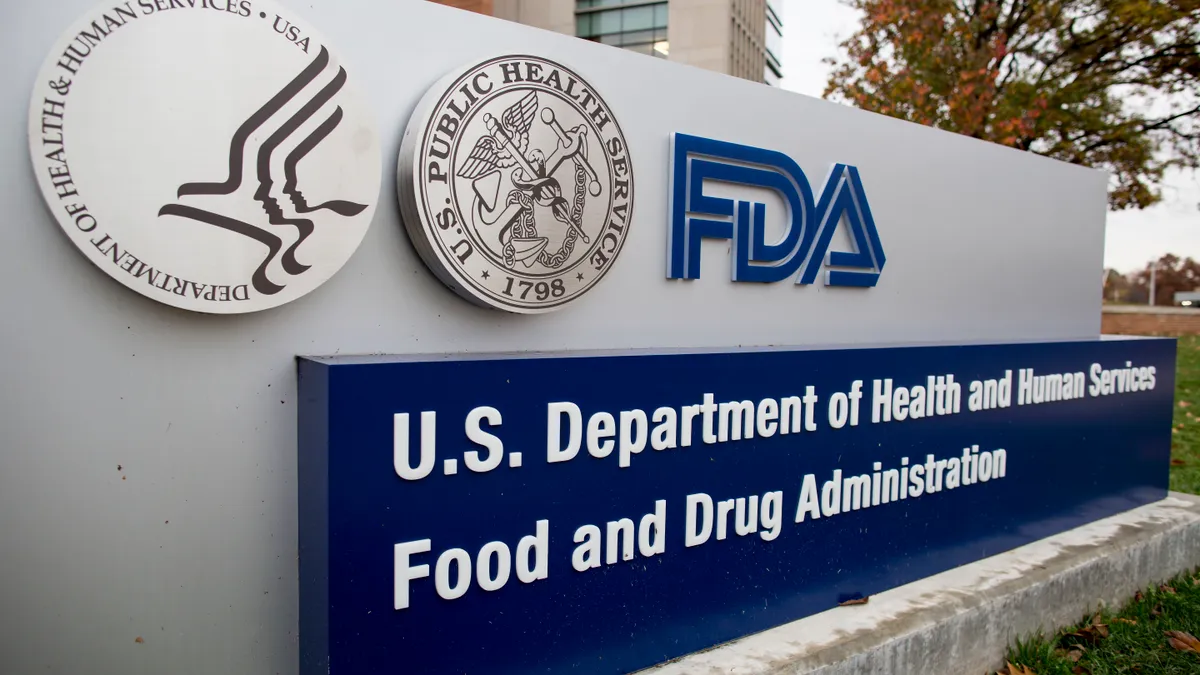Dive Brief:
- FDA Wednesday cautioned patients, athletic trainers and healthcare providers it is aware of companies illegally marketing devices with claims they can assess, diagnose or manage brain injuries like concussions.
- The agency said many of the unregulated products in question have been marketed to parents and coaches as tools to examine changes in an injured player's brain function at a sporting event via smartphone or tablet-based tests which check for changed vision, concentration, memory, balance and speech as indicators of cognitive status.
- FDA said it has asked those companies to remove their unsubstantiated claims and is "prepared to take further action if necessary."
Dive Insight:
While FDA has approved a number of new concussion and traumatic brain injury (TBI) assessment tools in recent years, the agency noted that none of those legally marketed devices are indicated for use without evaluation and assistance from a healthcare provider.
"I want to be clear, there are currently no devices to aid in assessing concussion that should be used by consumers on their own," FDA device center chief Jeff Shuren said in the release. "Using such devices can result in an incorrect diagnosis after a head injury that could lead a person with a serious injury to return to their normal activities instead of seeking critical medical care, putting them at greater danger."
Devices greenlighted by FDA, from five different listed manufacturers, most recently include the De Novo-cleared EyeBox, which tracks eye movement to measure cranial nerve function, as well as an expanded version of 510(k)-cleared BrainScope One, a portable point-of-care device system involving an electrode headset and a practitioner's handheld electroencephalogram signal (EEG) recording device, aiming to capture and evaluate certain brain electrical activity biomarkers of TBIs.
The agency also qualified the first biomarker test for use in developing treatments for TBI in March, meaning device developers can use the test to classify and enroll TBI patients into studies.
It is not the first time FDA has targeted unapproved concussion device makers, which target a U.S. market of anywhere from 1.6 million to 3.8 million sports or recreation-related head injuries each year. SyncThink received a warning letter in 2017 for marketing its virtual reality headset-like Eye-Sync eye tracking device for unapproved indications.
FDA noted that while the product was cleared for use in recording, viewing and analyzing eye movements as a means to identify visual tracking impairment, the company misbranded the device as intended for cognitive assessment and concussion testing, which "would constitute a major change or modification to its intended use." The company received breakthrough designation earlier this year to formally expand the device into new indications.
CEO Rosina Samadani of EyeBox maker Oculogica does not think marketing of unregulated devices in the concussion space is uncommon.
"We've talked with hundreds of physicians; they're definitely getting sales calls," Samadini told MedTech Dive, adding that she didn't know what prompted FDA's warning Wednesday, but regulators are likely "a little fed up."
FDA said it has communicated concerns regarding promotional materials to the sellers, and will update its safety communication if significant new information becomes available in recent years.











